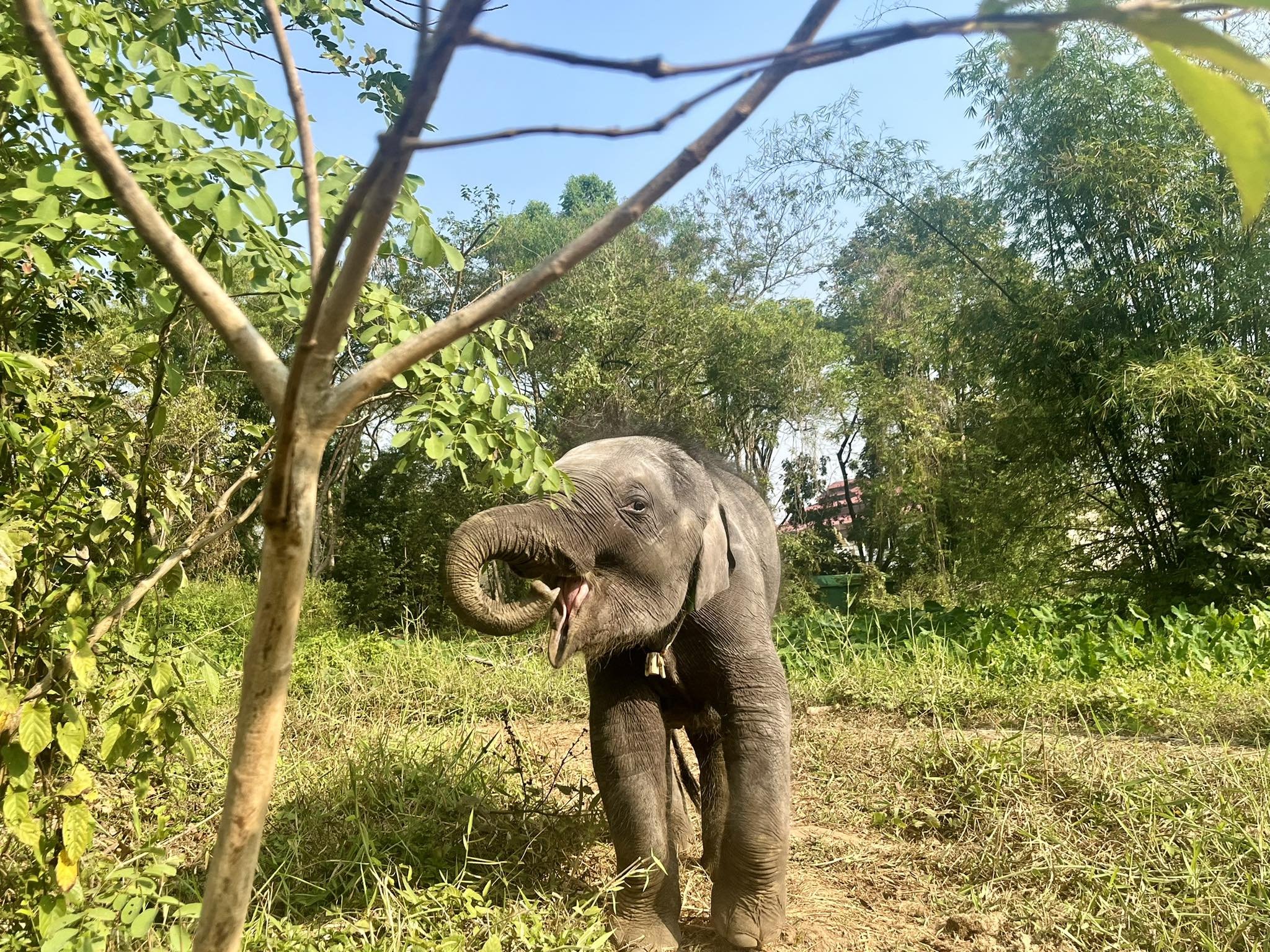In 2022, we told you about a calf in Myanmar, born to a mother that was unable to produce milk. Thankfully, another mother elephant had just given birth the month prior and she allowed the new calf to nurse from her along with her own calf. Nursing two calves at once is a feat and a request for assistance was made by the staff at Life in Oozie Village Ecohut (LOVE) to help provide supplemental food for both babies and the nursing mother. AES was quickly able to respond to the request and send the necessary funds to provide milk and other fodder.
For over a year, your contributions were critical to the survival of these two calves (Moe Moe & Phyo Phyo) and the mother caring for them. At the same time, there was another calf in another part of Myanmar that would need help.
On May 14, 2023, there was a strong cyclone, named Mocha, in western Myanmar. A little orphan calf was found that day and thus named after the cyclone. The Elephant Emergency Response Units (EERU) of Aveyrwady Division, where wild elephants reside, found the body of a female elephant, estimated at 25-30 years old, apparently killed by a poison dart. This tiny calf, less than one month old, was found near the female's body and was initially cared for by the EERU team in this area.
Ten days later she was well enough to travel. The EERU Team came to Yangon for a workshop funded by Asian Elephant Support and brought along Mocha. The little girl made the 5-hour trip in good condition under the EERU team's care. She is now being cared for at that same elephant camp in Yangon, Life in Oozie Village Ecohut (LOVE).
Now, little Mocha is a year old. She is continuing to thrive, but she needs your help more than ever. As the surrounding area continues to experience hardship, Mocha and the other calves cared for at LOVE still need supplemental formula and fodder to keep them growing strong and thriving. We are proud to support the EERU Teams, veterinarians, and other field staff in Myanmar who always have the care and future of Asian elephants as their first priority.
Mochda today is strong and thriving




